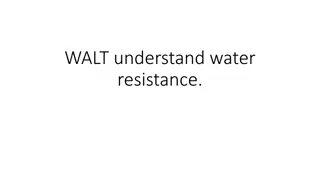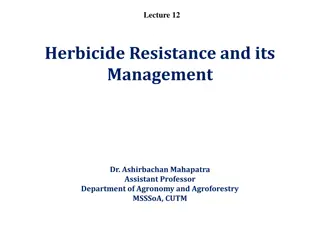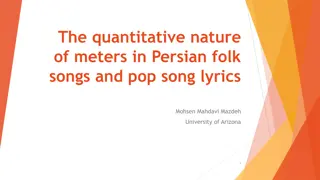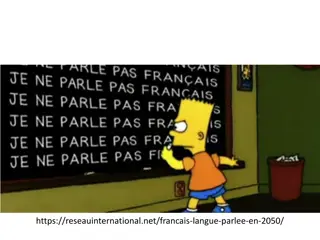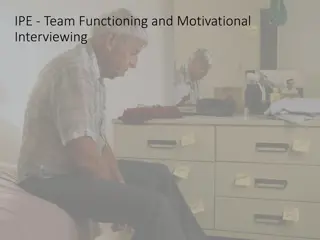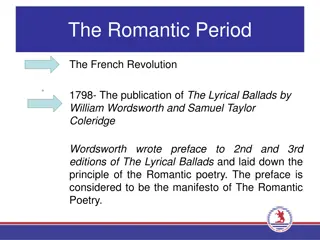Poetry and Resistance in French: A Closer Look
Delve into the intersection of poetry and resistance in French literature, exploring how poets like Louis Aragon used their words to oppose Nazi occupation during World War II. Discover the profound impact of poetry in shaping political opinion and inspiring change, as seen through poignant works like "Ballade de celui qui chanta dans les supplices."
Download Presentation

Please find below an Image/Link to download the presentation.
The content on the website is provided AS IS for your information and personal use only. It may not be sold, licensed, or shared on other websites without obtaining consent from the author.If you encounter any issues during the download, it is possible that the publisher has removed the file from their server.
You are allowed to download the files provided on this website for personal or commercial use, subject to the condition that they are used lawfully. All files are the property of their respective owners.
The content on the website is provided AS IS for your information and personal use only. It may not be sold, licensed, or shared on other websites without obtaining consent from the author.
E N D
Presentation Transcript
An Introduction to Close Reading in French Dr Emily McLaughlin, Wadham College, Oxford
Using song to help us understand poetry What is your favourite song? What kind of language is used in this song? Could we say that this song bears a resemblance to a poem?
Ballade de celui qui chanta dans les supplices Written by Louis Aragon in 1943 Hommage to Gabriel P ri, a French Communist journalist and politician, member of the French Resistance, who was executed by the German Occupying Forces on 15th December 1941.
The French Resistance and Poetry Germany invaded France in 1940. From 1940 to 1945, the Northern half of France was ruled by the Vichy Government which collaborated with Nazi Germany. The French Resistance emerged as small groups of men and women who sought to disrupt the Vichy Government s collaboration with Nazi Germany. The Resistance published underground newspapers and circulated texts that sought to shape public opinion. Poets such as Louis Aragon, Paul luard, and Robert Desnos published poems in support of the French Resistance.
Why poetry? Why do you think writers chose to write and circulate poems in particular at this time? Is there anything about the form of a poem that makes it a useful tool for changing how people feel and shaping political opinion?
Ballade de celui qui chanta dans les supplices Et s'il tait refaire Je referais ce chemin... Une voix monte des fers Et parle des lendemains. And if it were to be done again, I would take this road once more... A voice rises from the iron chains And speaks of days to come. Written by Louis Aragon in 1943 On dit que dans sa cellule, Deux hommes, cette nuit-l , Lui murmuraient : Capitule De cette vie es-tu las? They say that, in his cell, That night, two men Whispered to him, Give up, Are you weary of life? Hommage to Gabriel P ri, a French Communist journalist and politician, member of the French Resistance, who was executed by the German Occupying Forces on 15th December 1941. Tu peux vivre, tu peux vivre, Tu peux vivre comme nous ! Dis le mot qui te d livre Et tu peux vivre genoux... You can live, you can live, You can live like us! Say the word that sets you free and You can live on your knees...
Et s'il tait refaire, Je referais ce chemin... La voix qui monte des fers Parle pour les lendemains. And if it were to be done again, I would take this road once more... The voice that rises from the iron chains Speaks for the days to come. Rien qu'un mot la porte c de, S'ouvre et tu sors ! Rien qu'un mot : Le bourreau se d poss de... S same ! Finis tes maux ! Only a word and the door gives way, It opens up, and you leave. Only a word And the executioner loses all his power... Hey presto! Your troubles are over. Rien qu'un mot, rien qu'un mensonge Pour transformer ton destin... Songe, songe, songe, songe la douceur des matins ! Only a word, only a lie, To transform your fate Think, think, think, think Of the sweetness of the coming mornings!
[...] Et si c' tait refaire Referait-il ce chemin ? La voix qui monte des fers Dit : je le ferai demain. And if it were to be done again, Would he take this road once more? The voice that rises from the iron chains says: I will do it tomorrow. Je meurs et France demeure Mon amour et mon refus. mes amis, si je meurs Vous saurez pour quoi ce fut ! I die and France remains My love and my refusal. Oh my friends, if I die You will know why it was! Ils sont venus pour le prendre Ils parlent en allemand L'un traduit : Veux-tu te rendre ? Il r p te calmement : They came to take him They speak in German One translates: Do you want to surrender? He repeats calmly:
And if it were to be done again, I would take this road once more... Under your blows, weighed down by chains, Let all the days to come sing! Et si c' tait refaire Je referais ce chemin, Sous vos coups, charg s de fers, Que chantent les lendemains ! [ ] (Louis Aragon, 1943)
Circulation How do you imagine this poem might have been passed from person to person?
Some other poems to read Gabriel P ri by Paul luard Libert by Paul luard Couplets de la rue Saint-Martin by Robert Desnos






